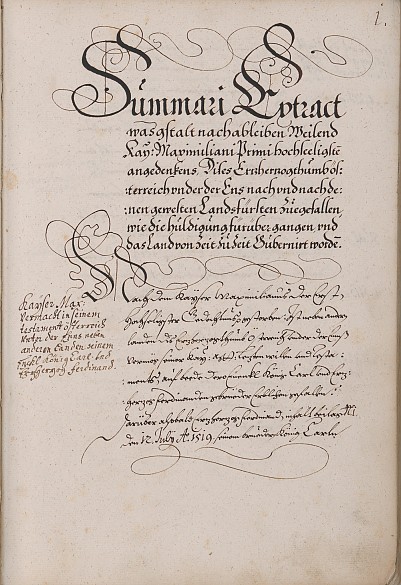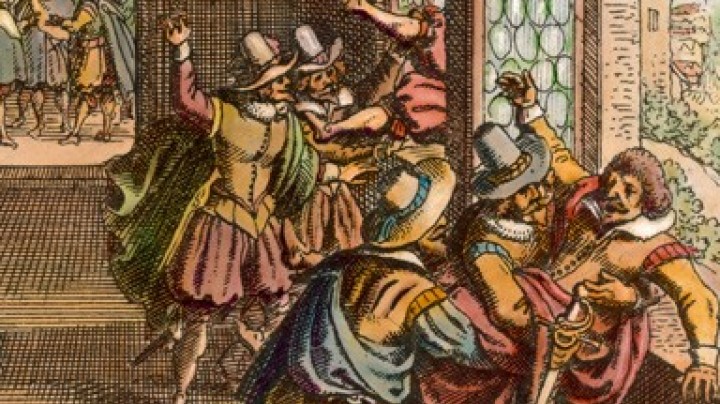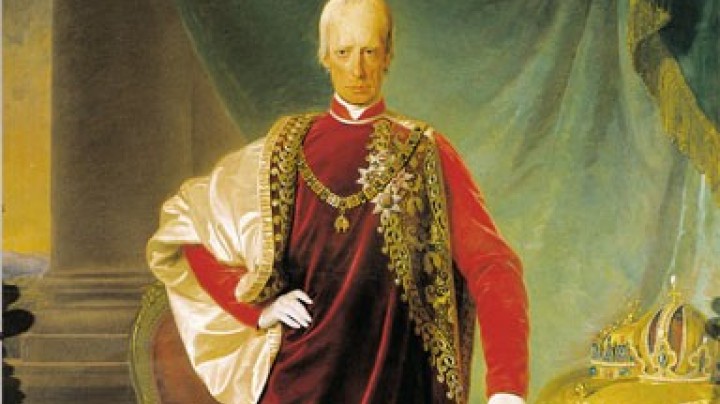Horn: town of insurgent Estates
In 1608 the Horner Bund (League of Horn) met: an assembly of Protestant aristocrats attempt to force Matthias to accept their religious demands.
‘The Turk is the Lutheran’s good fortune’, as a saying from the reign of Ferdinand I went, when the continual threat of a Turkish invasion forced the Habsburgs to make substantial concessions.
Ever since the Peace of Augsburg in 1555, political disputes between the emperor, the imperial Estates and territorial sovereigns had been increasing as all subjects were forced to adopt their rulers’ confession. Those who were unwilling to convert were forced to emigrate. After Matthias became ruler of Upper and Lower Austria in the wake of his quarrel with his brother Rudolf II and with the subsequent support of the Protestant Estates, Protestant aristocrats seized the opportunity of strengthening their rights and privileges in the face of the increasing power of the Counter-Reformation. Four fifths of the nobility were Protestants, and its members especially in Upper and Lower Austria and Moravia joined forces to form the League of Horn, summoning an assembly in October 1608 to discuss further moves. Their intention was to withhold their oath of allegiance to Matthias until he granted them religious freedom.
As the monarch depended heavily upon the support of the Estates, especially in the time of the Turkish War, he was eventually compelled to accept their terms: freedom of religion was granted to the Protestant aristocrats within the confines of their castles, villages and fortresses, along with the three churches of Inzersdorf, Tribuswinkel and Hernals. In return, the ‘insurgent’ aristocrats were obliged to dissolve the Horn League.
However, the Protestant nobility were losing power and influence as the imperial court succeeded in firmly integrating the Roman Catholic members of the Estates into the political process by appointing an increasing number of them to official positions at Court. As the Protestant Estates in Lower Austria were relatively independent of the imperial court, their influence was correspondingly diminished.
















